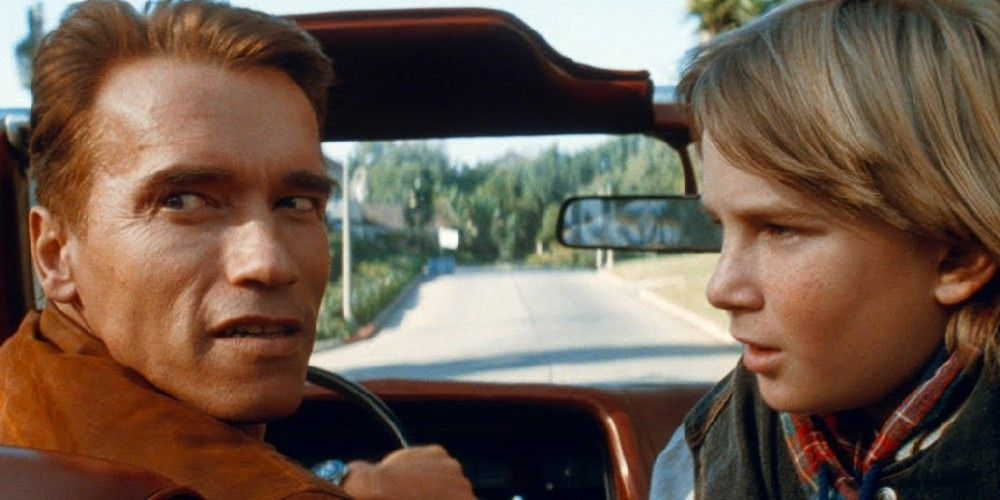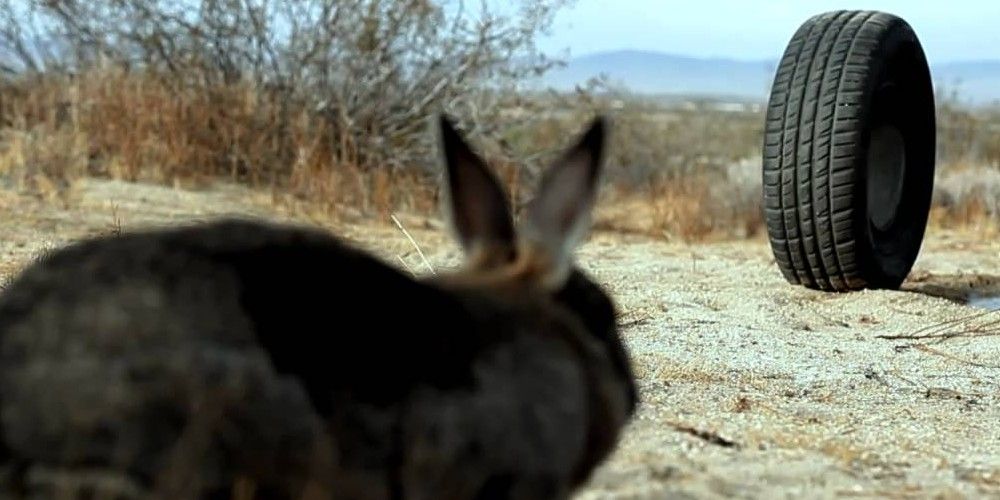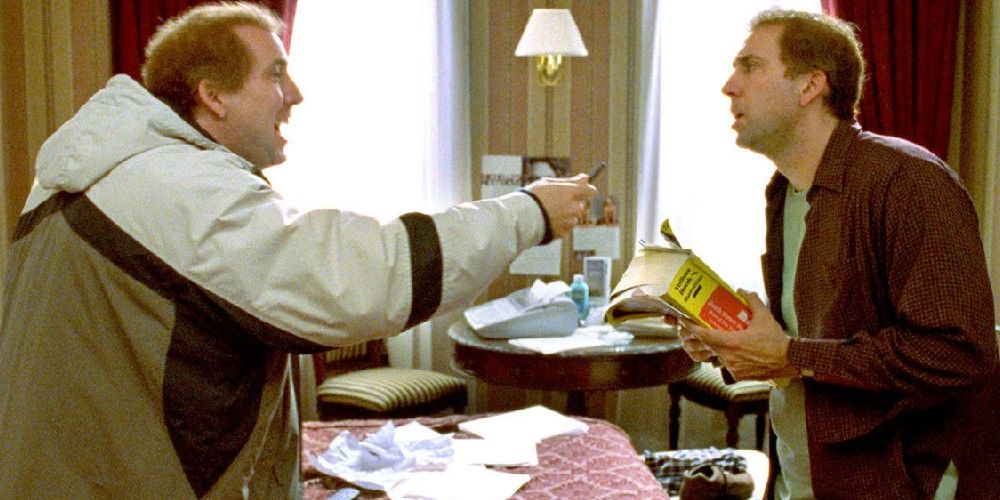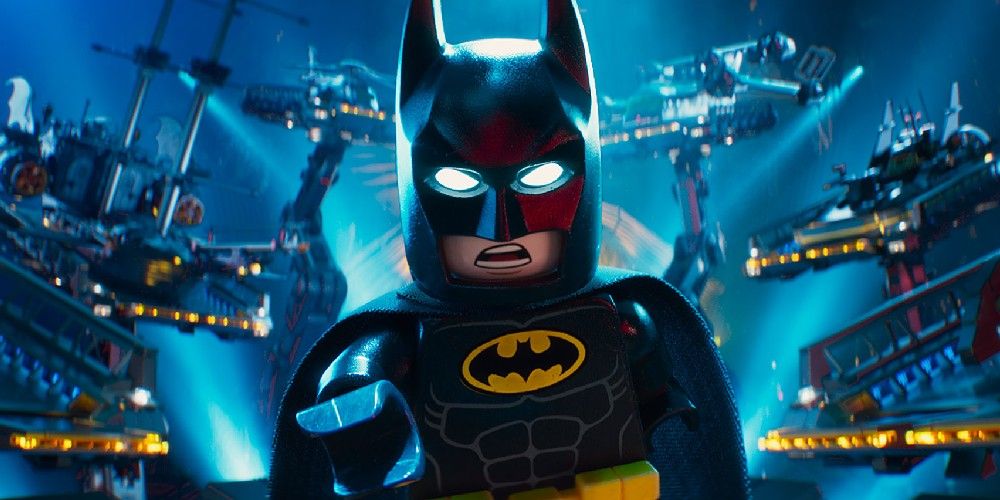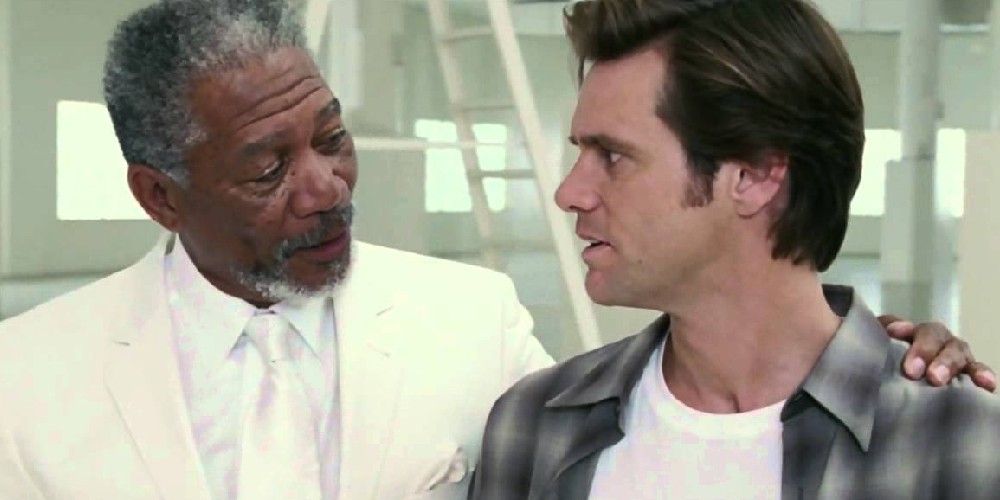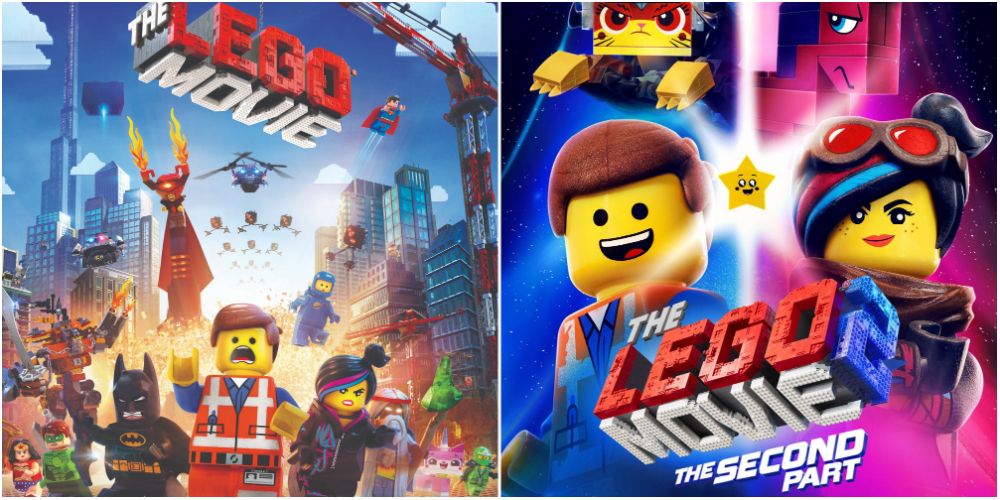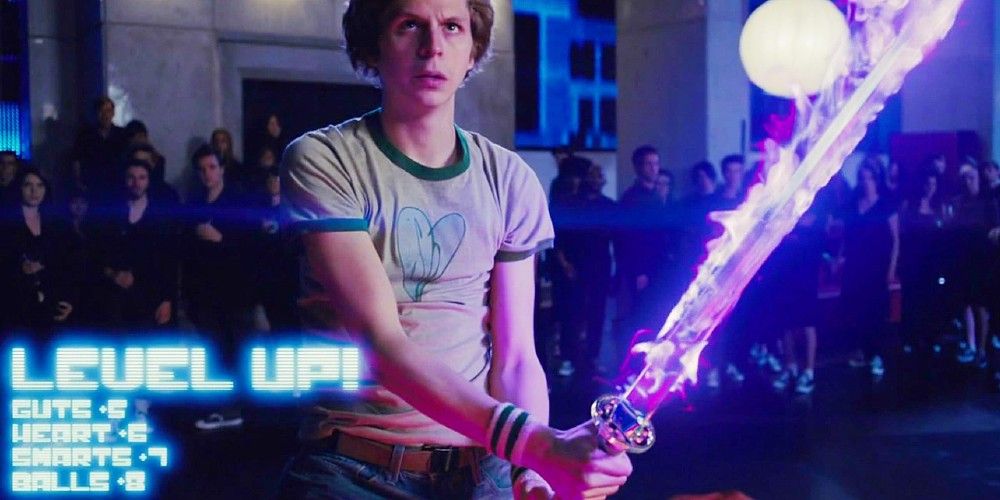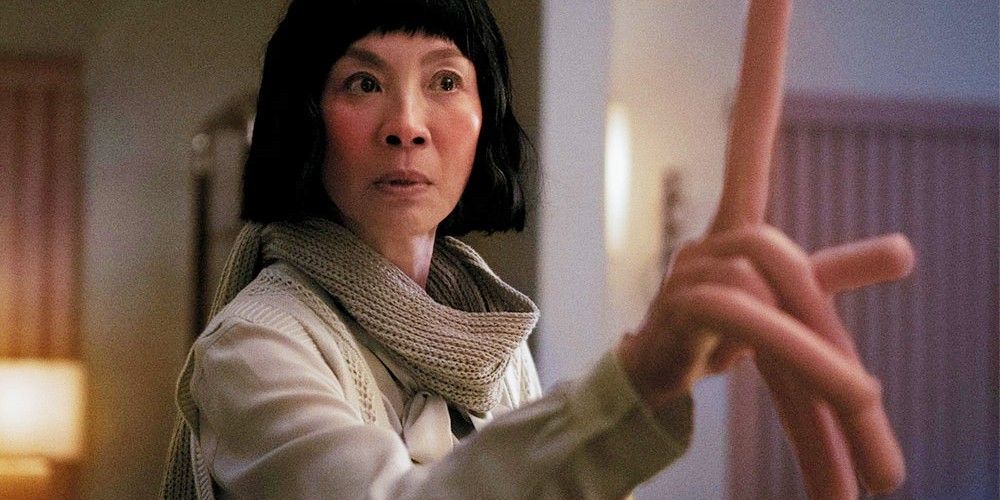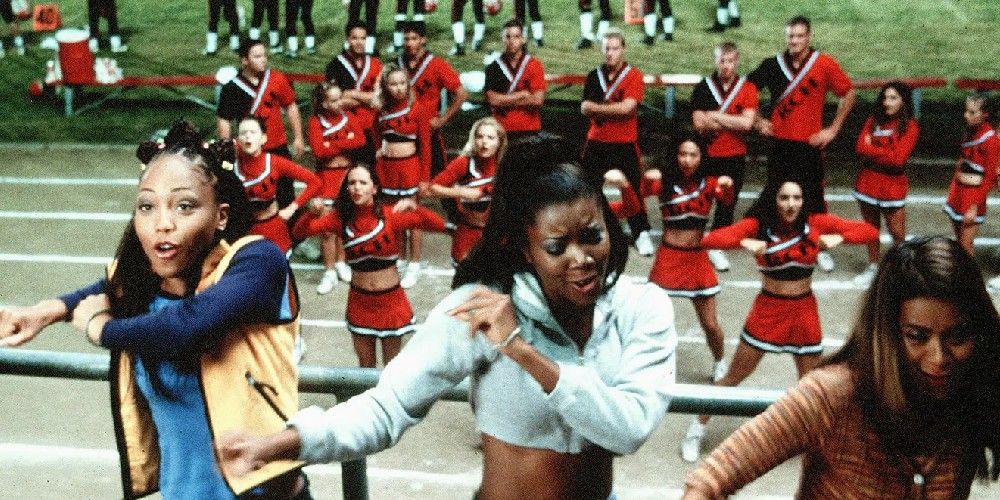Regardless of their quality, genre movies are almost always dismissed by critics and audiences for being too silly. There's a tendency to conflate the lack of creative flair and fidelity to realism to cinematic art. With few exceptions, seemingly goofy movies that are deeper than most "adult dramas" are only appreciated in hindsight.
Unlike their more self-serious counterparts, genre movies shamelessly lean into their respective genre's tropes and styles to get their messages across. The end result is an impressively creative and entertaining ride that also has something meaningful to say. These movies may look silly, but they're anything but jokes.
Spoilers ahead.
10 Last Action Hero Reaffirmed The Action Genre's Empowering Potential
It's easy to see Last Action Hero as a snarky spoof of '80s action movies or the genre's swan song, even when it's more than just a homage. Beneath Last Action Hero's witty takedowns of the action genre's clichés was an acknowledgment of how power fantasies could inspire people to do good, even if they had their limits.
Danny Madigan was inspired by Jack Slater's onscreen heroics to become a better person. However, Danny also had to accept that Slater's adventures were escapist fiction, and they could never replace reality. Few action movies ever confronted such existential concepts and truths the way the silly Last Action Hero did.
9 Be Kind, Rewind Highlighted The Feelings Of Community That Filmmaking Inspires
Most people remember Be Kind, Rewind as the movie that popularized "Sweding," or cheaply remaking a Hollywood movie with little to no resources. Be Kind, Rewind's Sweded movies were hilarious, but they were more than just spoofs. Sweding was an artistic and unifying force for the residents of Passaic, New Jersey.
Thanks to Sweding, the townspeople became a passionate community that supported each other's mutual love of art. Sweding could also be seen as a silly but sincere interpretation of movies' cultural footprints. People tend to only remember the specific movie moments that affected them most, and that's what the cast Sweded.
8 Rubber Hid A Reflection About Nihilism Beneath Its Schlock
Rubber became the most polarizing modern B-movie because it was anything but a schlocky throwback. Ostensibly, Rubber was about a sentient killer tire. In truth, Rubber was a feature-length screed about the futility of existence. The self-aware tire with psychic powers was just the hook and framing device.
Throughout its runtime, Rubber hammered in how indifferently random life was. This inherent lack of reason justified everything Robert the Tire and Rubber's fourth wall breaks. Most fans of old-school horror found Rubber pretentious, while a few praised the movie's mix of a silly premise and thought-provoking takes.
7 Adaptation Featured Two Nicolas Cages Conquering Fear & Self-Doubt
Screenwriter Charlie Kaufman is best known for absurdly silly movies with deep subtexts. Adaptation is the ultimate Kaufman movie. Adaptation starred Nicolas Cage as Kaufman and his fictional twin, Donald Kaufman. Despite looking like a typical Nicolas Cage meme, Adaptation wrestled with Charlie's sense of self.
The introverted Charlie faced then overcame his self-important sensibilities not just to adapt the novel The Orchid Thief for the big screen, but to adapt to the world as well. What's more, Charlie and Donald's relationship gradually evolved from a Nicolas Cage gag to a heartfelt and even tragic brotherly bond.
6 The Lego Batman Movie Was Batman's Best Character Study
To most Batman fans, The Lego Batman Movie was the most childish interpretation of the Caped Crusader since the '60s show or Batman: The Brave and the Bold. Not only was The Lego Batman Movie a celebration of all Batman media, but it was also the one movie that arguably understood Batman's character the most.
Through colorful gags and references, The Lego Batman Movie posited that Bruce Wayne only became Batman because he was afraid of being vulnerable and letting others enter his life. Batman's live-action movies often pontificated about the justice he represented, but The Lego Batman Movie understood him on a human level.
5 Bruce Almighty Deconstructed Entitlement Through Godly Jokes
To most viewers, Bruce Almighty was the last great Jim Carrey comedy. Seeing the legendary comedian literally become God for a few days was the perfect comedic premise that led to many memorable gags. However, Bruce Nolan's temporary godhood was also a demolition of his entitlement and narcissism.
Bruce always wanted more than he needed in life, but he was too self-absorbed to realize just how empty this made him feel. Bruce only realized that the pursuit of personal glory and material wealth wasn't worth it when he lost everyone in his life, and after the consequences of his selfish godhood nearly ended the world.
4 The Lego Movie Duology Showed The Importance Of Being Young At Heart
At first glance, the two Lego Movies were the most brazen and cynical forms of product placement in recent memory. Not only did they advertise Lego, but they overflowed with pop culture references and tie-ins to other franchises. In truth, The Lego Movie and its sequel reminded viewers to keep their inner children alive.
The Lego Movie's story only happened because a boy wanted to connect with his emotionally distant, Lego-collecting father. Also, the movie was a satire of modern life's absurdity. Similarly, The Lego Movie 2: The Second Part dealt with the now grown-up boy's adolescent instincts to take himself too seriously in the name of masculinity.
3 Scott Pilgrim Vs. The World Used Video Game Logic To Make Scott Grow Up
Scott Pilgrim vs. The World has a reputation for being one of the nerdiest movies ever made. Not only was it loaded with video game references, but the movie was about a transparent audience-insert who "won" a romantic relationship after winning literal boss fights. What many missed was that Scott was forced to mature.
Scott was an immature and unlikable audience avatar, and he saw the world through pop culture-colored lenses. Interestingly, Scott didn't have to outgrow his nerdy tastes. Instead, Scott changed his mindset and personality within the framework of his hobbies. Scott Pilgrim's amazingly silly visuals tend to overshadow its themes, though.
2 Everything Everywhere All At Once Was The Wildest Affirmation Of Life & Love
Everything Everywhere All at Once quickly grabbed viewers' attention with its take on the multiverse. The movie looked like a silly epic-scaled comedy about endless realities, here depicted as varying movie genres. In truth, Everything Everywhere All at Once was the most creative and layered refutation of juvenile nihilism.
As saccharine as the "power of love" sounds to most people, Everything Everywhere All at Once wholeheartedly advocated for belief in it. The movie also challenged Asian people's familial dynamics and traditions. It even went as far as positing that the older generations have a lot to apologize and make amends for.
1 Bring It On Said A Lot About Feminism & Race Relations Through Cheerleading
Despite its popularity in the early 2000s, Bring it On gets dismissed because it was a movie about cheerleading. What many ignored was the fact that Bring it On was ahead of its time in terms of representation. More importantly, Bring it On highlighted themes of cultural appropriation, intersectional feminism, and racial inequalities
Bring it On did this by having the Toros cheer squad confront the realities of their predecessors stealing a hit routine from the Clovers: a squad of Black cheerleaders who were always treated unfairly. Few fun and admittedly silly high school sports movies are as thematically ambitious and timelessly relevant as Bring it On.


